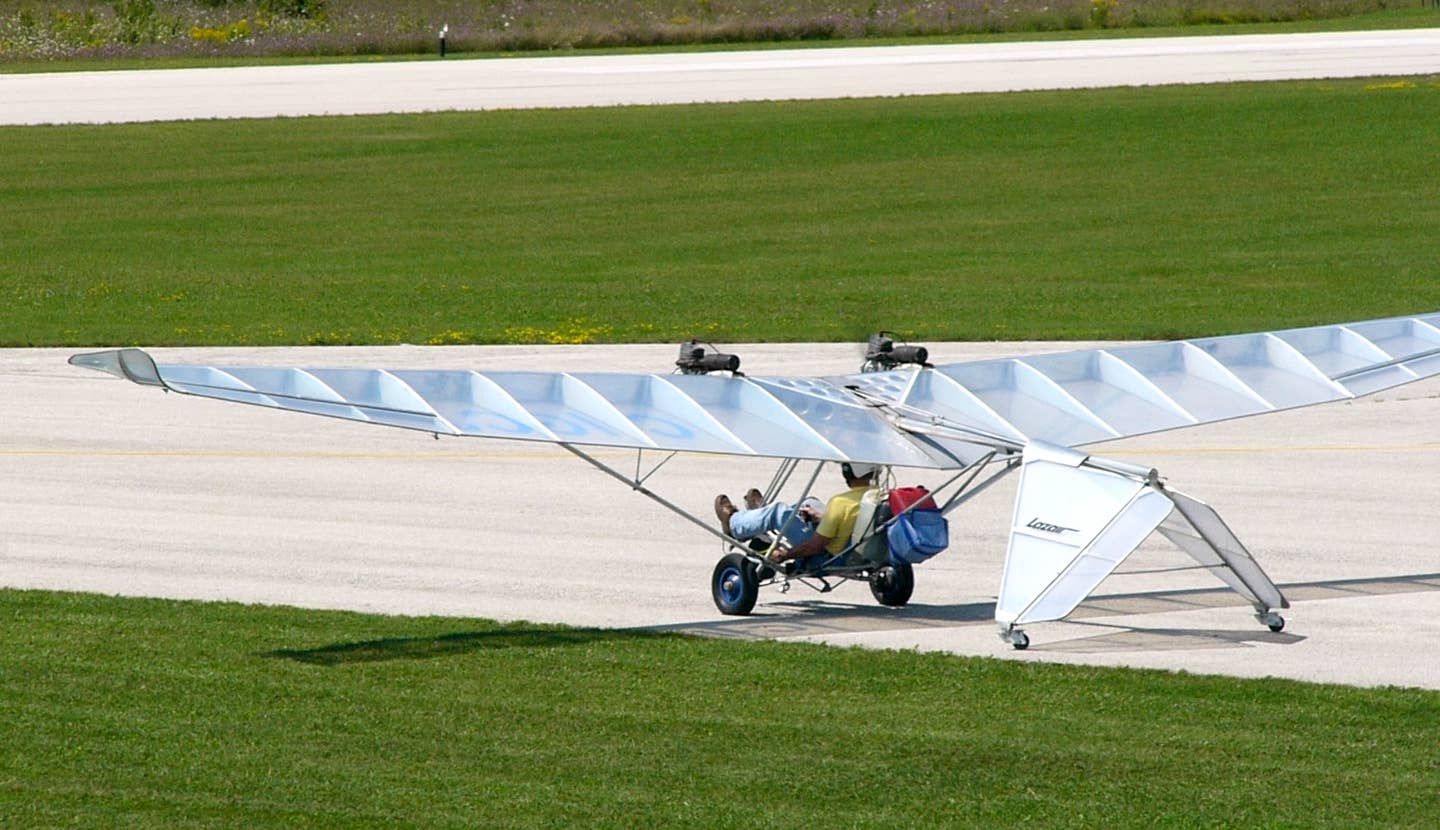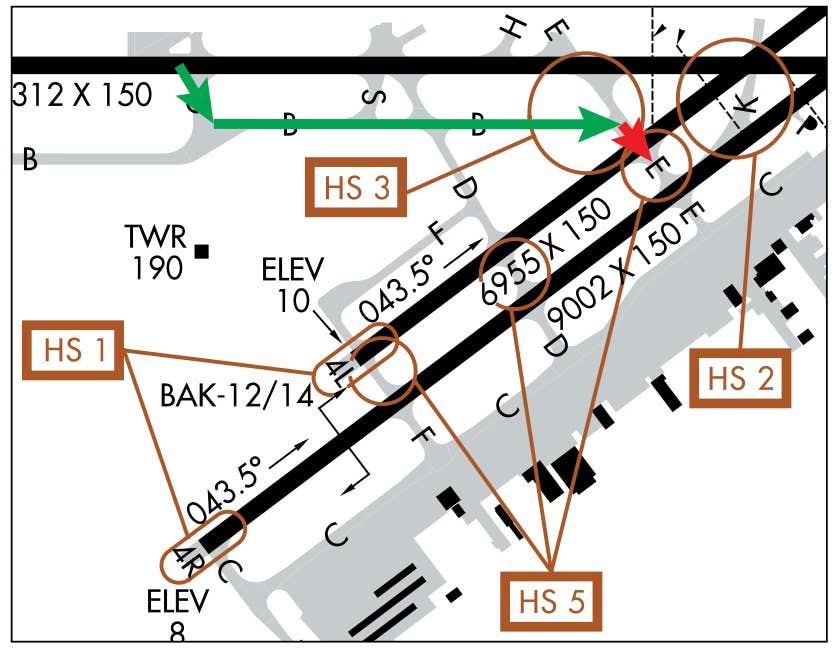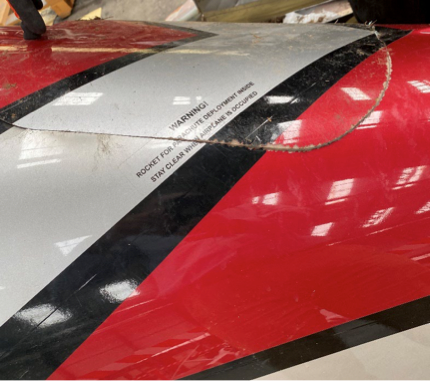Legal Issues for Pilots
By the time a person finishes training for a pilot certificate, he or she has gotten a good introduction to a small corner of the FARs, has probably learned nothing about whats involved in buying or owning an airplane and had an immersion in aviation Old Wives Tales(OWT) regarding legal obligations and potential liabilities as a pilot.
By the time a person finishes training for a pilot certificate, he or she has gotten a good introduction to a small corner of the FARs, has probably learned nothing about whats involved in buying or owning an airplane and had an immersion in aviation Old Wives Tales (OWT) regarding legal obligations and potential liabilities as a pilot. This article is to briefly look at some of the legal issues a pilot might face, outline how to approach them and try to debunk a few of the OWTs that are still floating around. Well take a look at how to deal with a ramp check, group aircraft ownership, care of aircraft logbooks, declaring an emergency, what to do if ATC gives you a phone number and asks you to call, what to do after an incident or accident, landing on a taxiway and flying over gross.
This article isnt legal advice; all situations are different, for advice for a specific situation you face, please contact an attorney.
Ramp Checks
The idea of having an FAA inspector walk up and announce a ramp check generally gets a pilots adrenalin level up to where its spraying out of his ears. Naturally, its the subject of a lot of conversations, Internet drama, false information and misleading advertising by companies trying to sell a gadget or an app.
To start with, the FAA has the authority to conduct ramp checks. The Federal Aviation Act of 1958, which created the FAA, requires it to scrutinize the aviation community for the purpose of safety. One way it does so is via ramp checks.
The purpose of a ramp check is limited: to see if the pilots and aircrafts documents are in order. Thats all. It is not an investigation into what the pilot has been doing.
The usual procedure is for the FAA inspector to approach a pilot who is near an airplane, introduce him or herself, show ID, announce that a ramp check is being conducted and ask to see the aircrafts documents and pilots certificates.
In my opinion, the best way to handle a ramp check is to simply provide the requested documents while behaving professionally. I suggest you write down the inspectors name. Inspectors are human, the vast majority that I know are good folks (most of whom hate doing ramp checks), but there are some who feel the need to hassle pilots.
Dont be chatty; pilots who run their mouths have a strange tendency to admit to doing something stupid with an airplane and thus turn a ramp check into an investigation.
Dont be a jerk; that sets off alarm bells for inspectors-you might as well as be announcing that you have something to hide. Its an effective way to turn a two-minute event into an unpleasant, long lasting episode with the FAA.
Dont worry about handing your certificate to the inspector-the Internet fables about the inspector keeping it and claiming you had surrendered it are indeed fables. The surrender of a pilot certificate is governed by FAR Part 61.27. It must be in writing and contain specific language or it is not effective. An FAA Regional Counsel once told me that if an inspector tried to hang onto a pilots certificate during a ramp check the inspector would be lucky to keep his job and his next assignment would be in Nome.
You are required to provide: photo ID, pilot certificate and medical (drivers license if Light Sport), the aircrafts airworthiness certificate, registration, weight and balance/limitations documents (in the POH if the airplane has one, separate weight and balance paperwork if the airplane does not). You may be asked to show the aircraft logs. They should not be in the airplane (theyre too valuable, more on that below). Its rare that an inspector makes such a request; if it is made, the appropriate response is to schedule a time and place where you can provide them for review.
You do not have to: let the inspector get into the airplane (Part 91), do a weight and balance calculation for a flight youve made or answer any question about what youve been doing.
You do not have to have current, or even any, charts in the airplane under Part 91.
The moment an inspector asks you about something that happened in the past, even one second ago, its no longer just a ramp check, its an investigation. The FAA is supposed to tell you when its doing an investigation, but sometimes an inspector slips up. You do not have to answer investigation questions. If you are asked about something in the past, my suggestion is that you politely say that it sounds like this is becoming an investigation and that you will speak to your attorney before you answer any further questions. That is your right and inspectors are used to such an answer.
Group Aircraft Ownership
Every once in a while youll hear a pilot say that shes protected herself from liability in the event she crashes her airplane by having the airplane owned by a corporation or L.L.C. It wont work. If her sweaty hands were on the yoke when airplane crashed and she caused it, how the airplane is owned wont protect her in the event she is sued.
Nevertheless, when an airplane is owned jointly, the method of ownership can matter. If the owners have formed a partnership to own the airplane, the general rule is that each owner is personally responsible for the negligence of the other partners. When a corporation or L.L.C. owns the airplane, the shareholders of the corporation or members of the L.L.C. are not individually liable for the negligence of the other shareholders or members, particularly the one who was flying the airplane at the time of an accident.
Forming an L.L.C. or corporation for group ownership of an aircraft may have other benefits. That is especially true if one person wants to sell his share as it may simplify the process and may save on sales or use tax in some states. An airplane isnt cheap; in my opinion, its worth consulting with an attorney in your state with regard to the best way to set up ownership.
Nevertheless, when it comes to liability risk, the best way to handle it is to insure the risk, not try to set up some dodge that your hangar neighbors uncle came up with thats utterly foolproof.
The same rule applies for buying a share of an airplane as it does to buying the entire thing: never do it without having a pre-purchase examination performed by a mechanic you chose who knows the type of airplane involved.
Aircraft Logbooks
The aircraft, engine and prop logbooks for your airplane are worth from 10 to 20 percent of the aircrafts value. Take a moment and think of that in cash. Thats the general rule for how much will get knocked off the sale price of your airplane if you lose those logs. Its a fact of aeronautical life.
That means you should probably have a digital copy of the logbooks with the originals locked up someplace safe, not sitting on a shelf at your favorite maintenance shop. After all, would you leave a several thousand dollars in cash on that shelf?
When you have maintenance work done on your airplane, have the mechanic record the work done on a sticker that you put into the log. You then copy that page and add it to the digital record of your logs.
There is no requirement of any sort that a mechanic ever see the originals of your aircraft logbooks before doing maintenance or an inspection on your airplane. For your protection, and for the protection of your mechanic, provide either a digital copy or print out a hard copy. That way neither you nor your maintenance technician runs the risk of losing valuable documents.
Ive also seen logbooks held hostage by a shop when there was poor communication between the shop and the aircraft owner over what maintenance was authorized and what the price was going to be. Owners have had to sue shops to get logbooks back-not a good thing for anyone involved.
Emergencies and Paperwork
For reasons that seem to relate to old John Wayne movies, some pilots think that if they declare an emergency theyll have to deal with endless paperwork afterwards. That simply is not true-that OWT may well be responsible for fatal accidents because pilots shut up when they might have gotten help.
FAR Part 91.3 says that a pilot may deviate from any regulation in an emergency. It goes on to say that if the pilot does violate a regulation he or she will have to provide a report to the FAA if the FAA requests one. Think about what it says-there is the potential for having to file a report, but only if you have to violate a regulation in the process of dealing with an emergency. From what Ive seen, thats rare. The FAA figured out some years ago that pilots are overly hesitant to admit they have an emergency, so the fact that you declare does not trigger any reporting requirement.
If theres something wrong, its the pilots obligation to use all of the available resources to deal with the problem-and those may include getting ATC on your side. I read of one situation where a pilot had to shut down an engine on a twin and couldnt hold altitude. He was talking to ATC but refused to declare an emergency so ATC had to route him around two restricted areas. He barely made the runway. Thats foolish. Had he simply declared ATC could have cleared him straight to the airport.
Failing to declare an emergency when one exists may also increase the risk a pilot will be found negligent in a post-accident lawsuit. In most states, the law gives a person dealing with an emergency a lot of latitude; theres less second-guessing. However, if the pilot didnt declare, why is the jury going to believe there was an emergency? Also, if the pilot didnt declare, then she or he didnt use all available resources and could potentially be considered negligent.
Besides, if youve got a problem, its better to have the Crash Fire Rescue (CFR) crews waiting for you and not need them than to have them cutting the grass when your airplane catches fire during rollout after the fuel odor that was puzzling you ignites.
Please Call ATC
Youre flying along, minding your own business, when ATC calls you, gives you a phone number and asks that you call after you land.
You probably arent about to be told that youve won the lottery.
Should you call?
Maybe. (Hows that for a lawyers answer?) If you do, only do so after youve taken the time, after landing, to consider the situation and talk with your attorney. You dont get any points for calling in quickly, so take time to maturely consider what triggered ATCs desire to speak with you further.
Most of the time the whole thing started because you erred, or at least ATC is convinced you did. If you call, remember that the call is recorded. Plus, you will identify yourself as the person flying the aircraft. On top of that, ATC keeps getting less and less discretion as to what it can do when there is a pilot deviation. The chances that you have a friendly conversation, admit you messed up, promise not to do again and the tower or Center says, OK, dont do it again, and closes the file on the subject are low.
However, the FSDO that is going to be processing the deviation has the discretion to let you off with a warning or have you do remedial training rather than hitting you with a violation-therefore, the polite, I messed up phone call to ATC could swing matters over to the warning side of the scale downstream.
So-there is no hard and fast answer to the question of whether to make the call.
There are, however, three hard and fast rules to follow if ATC asks you to call:
- Never argue with ATC on the frequency.
- Think before do anything about the request that you call ATC.
- File an ASRS (NASA) report immediately-if you do get a violation, you wont have your certificate suspended.
Accident Reporting
Youre going into the short strip near the vacation lodge and forget the gear. Ouch. Youre taxiing over to the pumps to fill up, misjudge, hit a post with the wing of your Piper Dakota, open up the tip tank, fuel gushes out, ignites and burns up your Dakota, a King Air and a Gulfstream. Wow.
To whom do you report the accident? NTSB? FAA?
You dont report it to either one; they are not reportable accidents under Part 830 of the NTSB regulations.
In the first example, a gear up landing almost never does enough damage to meet the reporting threshold of Part 830. In the second, the aircraft has to be moving for the purpose of flight. Taxiing to the fuel pump isnt moving for the purpose of flight.
An accident is reported to the NTSB. While the NTSB may tell the FAA, the regs call for the notification be made to the NTSB. The NTSB may delegate the investigation to the FAA; nevertheless, the notification is to the NTSB.
If you are involved with an incident that does not meet the definition of an accident, there is no reason to burden the NTSB or FAA with the time, effort, cost and paperwork involved with carrying out an investigation-they dont want to do it. However, if someone reports it, an investigation has to be conducted, and that may mean that the FAA looks at the pilot for a potential violation it might not otherwise have even known about.
Again, before doing anything, stop and think. Remember, even if the event is a reportable accident, which requires immediate notification under Part 830.5, you have to determine if it is reportable, so don't just pull out your cell phone and call the NTSB.
Aviation insurance companies know about the NTSB threshold reporting requirements, so just because you damaged your airplane, you dont need to report it to the NTSB for your insurance to pay for the repairs.
If you bend an airplane, I suggest the following checklist:
- Care for anyone who is injured
- Call your attorney
- Determine whether the event is reportable under Part 830
- If it is a reportable accident, notify the NTSB immediately
- Contact your insurer
Landing on a Taxiway
A few years ago, I looked at a four-fatality accident where a pilot elected to land despite a crosswind that was near the demonstrated crosswind velocity for the airplane. He lost control on rollout. What struck me was that the airport had a long taxiway that was oriented into the wind. There is nothing in the FARs that prevents a Part 91 pilot from landing on a taxiway at a non-towered airport. I kept asking myself why the pilot didnt land into the wind. There were no buildings or obstructions near the taxiway and taxiways are often used as runways during runway construction.
A crosswind that is at the edge of the pilot or the airplanes ability to handle it can have ugly results-general aviation has an unpleasantly high rate of runway loss of control accidents. While it would be wise to divert to an airport that has a runway more into the wind, fuel onboard may preclude such a diversion. Its certainly not common, but landing on a taxiway isnt prohibited by the FARs and landing into a strong wind on an unobstructed taxiway well clear of people and buildings may be far, far safer than trying to tackle that same wind when its blowing from the side.
You may never have good reason to land on a taxiway, but dont omit it from your bag of tricks because you think it's not legal when conditions make it sensible.
Flying Over Gross
As America gets fatter, it seems to me that there is an increasing willingness of pilots to fly their airplanes over gross. One of the OWTs I hear is that while it may be foolish to fly over gross, its not illegal. Its true that its foolish, however, its also illegal-Part 91.9 requires complying with the airplanes operating limitations.
Flying illegally, intentionally, is your call. However, if the fact the aircraft is over gross has some relation to the cause of an accident, say hitting an obstruction on takeoff or an inadvertent stall, you may find yourself short of defenses should you be sued. In some states you may be facing an automatic finding of negligence. Your insurance should still cover you-violation of a reg is generally not reason for an insurer to deny coverage-but you may have crippled your defense.
Conclusion
This article hasnt touched on all the legal issues a pilot may face, but I hope its targeted some of the more common-even if space has precluded it from dealing with them in depth. In my opinion, the important thing for a pilot to remember when coming up against a legal issue is to take some time to think before acting. The AOPA legal services plan pays for consultation with an aviation attorney on most aviation legal issues-in my opinion thats worth the price of admission. You worked hard to acquire the expertise to fly; when you need expertise on legal issue in aviation, it makes sense to contact someone who worked hard to gain it rather than make a quick decision you may regret.
Rick Durden is an aviation attorney, holds an CFI-AI an ATP with type ratings in the Cessna Citation and Douglas DC-3 and is the author of The Thinking Pilots Flight Manual, or How to Survive Flying Little Airplanes and Have a Ball Doing it, Vol. I.






